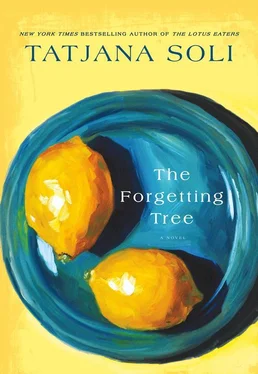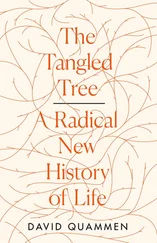Claire went to Octavio to explain, but he refused to discuss it. “I was not happy her working with Minna. It’s time for the next generation to be off the ranch.” He did not wait for a response.
* * *
After Paz was gone, Claire brooded in silence for a few days, angry, and complained about having to call around to find a new cleaning woman.
“Nonsense. We don’t need someone getting you sick. I’ll clean. I could use the extra cash.”
“I don’t think that’s a good idea,” Claire said, but it was too late. She knew that no matter whom she hired, Minna would be on the warpath with that woman.
Now Minna scrubbed toilets, mopped floors, talked to Claire less and less. Each time she passed her it was with a heavy sigh. When Mrs. Girbaldi came over with a home-baked pie, the two women sat in the living room while Minna vacuumed the room, pushing the hose under their feet, the sound making conversation impossible.
Mrs. Girbaldi watched and nodded to Claire. “Good job,” she mouthed.
But Claire worried. Minna worked with a kind of fury that made Claire edgy. Minna knelt on all fours and rubbed lemon oil into the wood floor so hard the wood groaned under her pressure. When she finished, her hands were raw.
Late at night, Claire heard Minna on the phone, speaking in what she now recognized was French Creole. She never seemed in a better mood afterward. Neither of them mentioned these calls.
When Claire asked her to play cards, she frowned. “Are you going to pay me for my time?”
“I didn’t hire you to clean. It makes me feel guilty. I don’t even care how the house looks.”
Those were the magic words, and the old Minna returned, walking with Claire in the orchards, lolling endless hours over coffee in the morning. The tension in the house was released as if a storm had blown over.
Minna didn’t refuse the extra pay for the work that she now no longer performed, and Claire didn’t want to upset the delicate peace by bringing up money. It was hard to explain even to herself how she came to accept the changes in their relationship. Perhaps it was just habit, the slow, creeping acceptance of the formerly intolerable. She was not an unintelligent woman, nor was she weak, but she supposed if she was honest, she would admit circumstances had revealed in her a hungering for transformation. Minna seemed integral to this.
For instance. A big surprise was the relief she found in no longer having to conform to outside expectations. Until then she had not realized how she’d made a prison of each moment of her day. Where had this compunction come from for sparkling countertops, scoured sinks, bleached sheets, socks and shirts folded neatly in their drawers? Whom was she out to please? Who was grading her? What an unexpected liberation to let dust accumulate, let the grass grow long and verdant, to allow birds to build nests in the eaves, to forget the grocery store and eat stew for three days in a row, or corn on the cob, or strawberries dirt-smudged from the fields. Minna’s laxness revealed that it mattered to no one, and now least of all to Claire.
* * *
There had come a time, after the trip to Mexico with the girls, when Claire could no longer stand miming her way through the empty days. After Forster left, she sat in her bedroom, still in her nightgown at five in the afternoon, hair unbrushed, when Lucy, home from school, came into her room, sat on the bed, and held her hand.
“Mom,” she said, “would it be okay if we just pretended we were happy?”
The shock of what she was doing to her girls called her to action. And that’s what she did all those years — conformed to the world’s expectations. Cleaned the house, ran the farm, took care of the girls, and smiled and pretended, pretended and smiled. Finally, pretenses were falling away.
Before she left, Gwen had stocked the freezer with meals she’d cooked, but over the next weeks, these ran out. For a while, Minna got motivated and cooked her own dishes: chicken and rice, plantains and beans. But these inspirations were erratic. Some days she would simply pick vegetables and fruit from the garden, and that would be what they ate. A few days they simply scooped avocado directly out of the shell, or smashed it on toast, drizzling it with lemon and salt. Ate oranges off the trees.
Minna no longer shut the windows or the doors, so it was as if they had no indoors, or rather that the rooms had become derelict and abandoned. A great interpenetration of the in with the out. Breezes fluttered papers on the couch, ruffled pages of an open book, ballooned the curtains. Sparrows tumbled through the windows and perched on the rafters, flying into furniture and walls until they found their escape. Feathers drifted onto the floor. Lizards sunned on the doorstop. It felt like living inside a ruin.
Yes, dirt collected on the tables, cobwebs in the doorways. A baby garden snake was found coiled in the bathroom. The floor was gritty, and the soles of Claire’s feet turned brown after walking barefoot across the room, but she was happy as she had never been happy in her spotless house. Dishes crowded the sink and counter, mold bloomed in the shower, but a great peacefulness was in the hours. It was as if from sheer will they had somehow stopped the track of time. Literally, Minna had disengaged the grandfather clock, saying the counting of the hours depressed her.
* * *
One afternoon as they watched the news, street riots were shown in some small island country Claire didn’t catch the name of. Minna watched, eyes widening till the whites showed, like the rolling eyes of a frightened horse. She got up unsteadily and turned the TV off. After that, they never watched television again, never listened to the radio. Claire got used to silence and for the first time in her life realized her own thoughts required a stillness she had never allowed.
Sometimes when they sat outside, they heard the workers’ voices far away, but the noise was indistinct and melodious and of no consequence, like birdsong or the buzzing of bees at work. Only for a special treat would Minna put on a CD, and then listening to Mozart or to jazz or reggae took on a richness unimaginable. Was that what heaven would feel like if one believed in it?
* * *
As summer drew on, the house grew hot in the daytime, and they slept in later and later. Claire woke to the smell of earth from the fields, citrus baking in the scorching sun. When it was unbearable inside, Minna swam naked in the pool while Claire dangled her legs in the deep end.
One morning by the pool, she noticed that Minna was putting on weight when a noise startled her. The pool man stood there, unexpected, holding his net and scrubber, lewdly grinning. For a moment, Claire felt panicked, the shadow of a memory of male intrusion. She was unused to the eyes of strangers. The women both wrapped themselves in towels and hurried inside. Claire was surprised that Minna, despite her brazenness, hid in her room. After he left, Minna insisted on firing him.
“Who will clean it?” Claire asked, knowing already the deed was done.
“I will.”
“But…”
“But what?”
And so with time, the pool, too, returned to its primordial nature, turned from blue to green. Leaves floated on its surface, and dirt collected on the bottom till it resembled a pond.
Claire added the pool man’s wages onto Paz’s wages onto her assistant’s salary, with no protestations from Minna. None of this bothered her for the simple fact of Minna’s increasing goodwill. She was simply buoyant, and her happiness transferred itself to Claire. They were like children going to camp during the summer, the ordinary, workaday world temporarily suspended except for the injections each morning that reminded Claire of her illness.
Читать дальше












